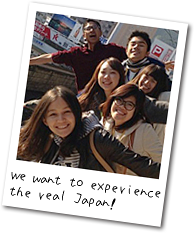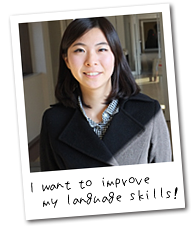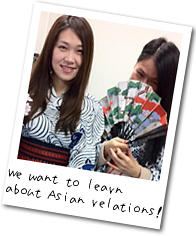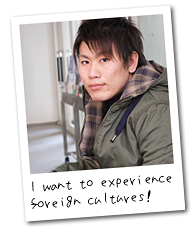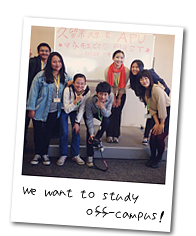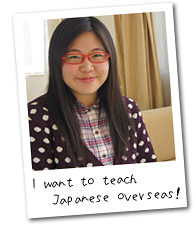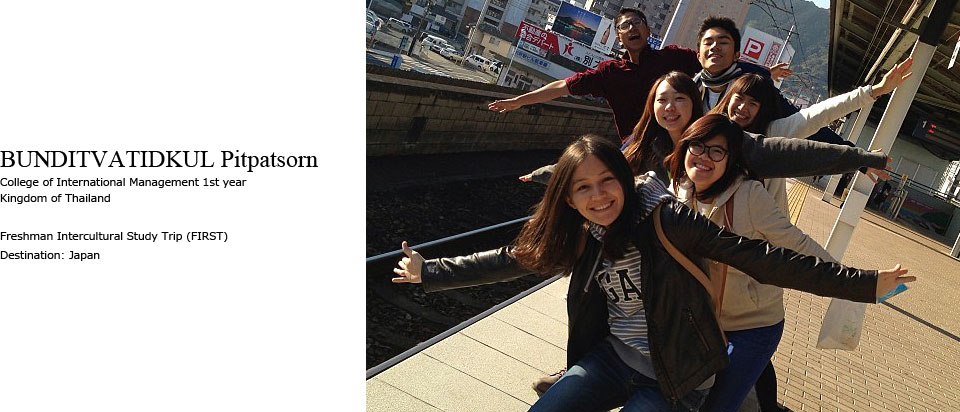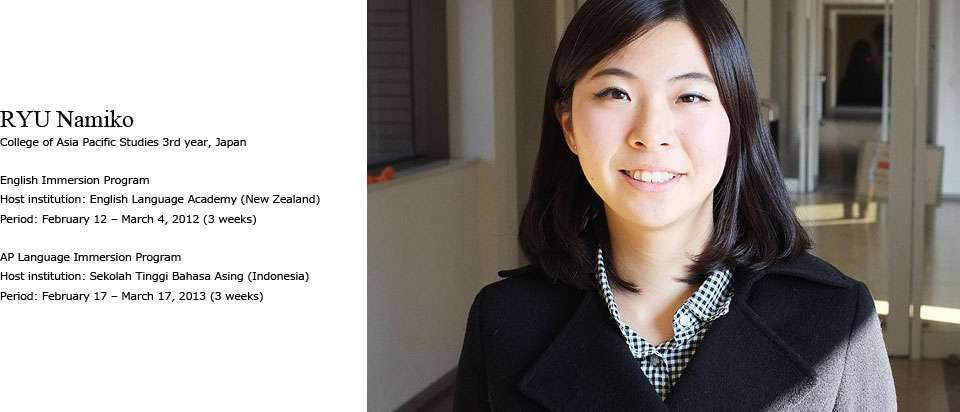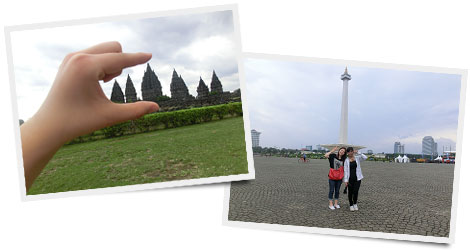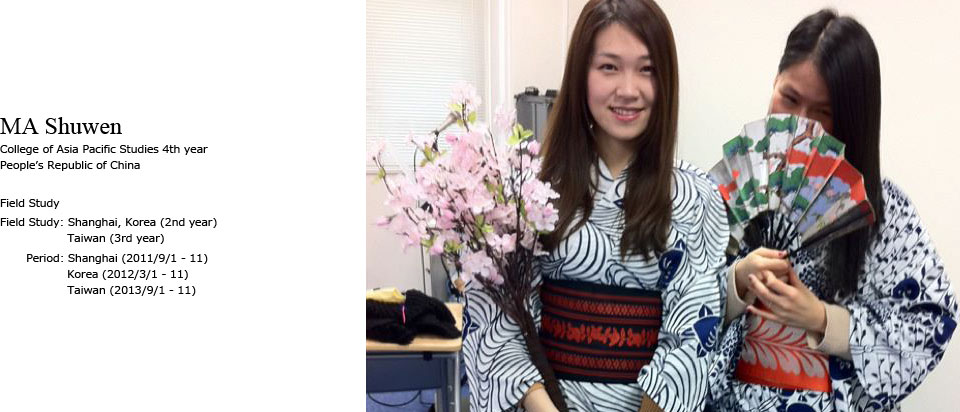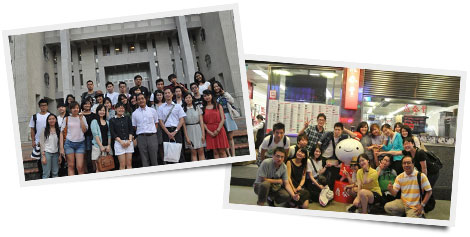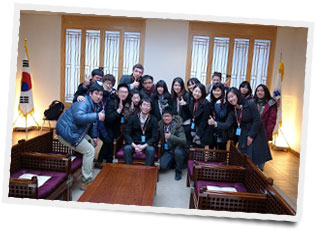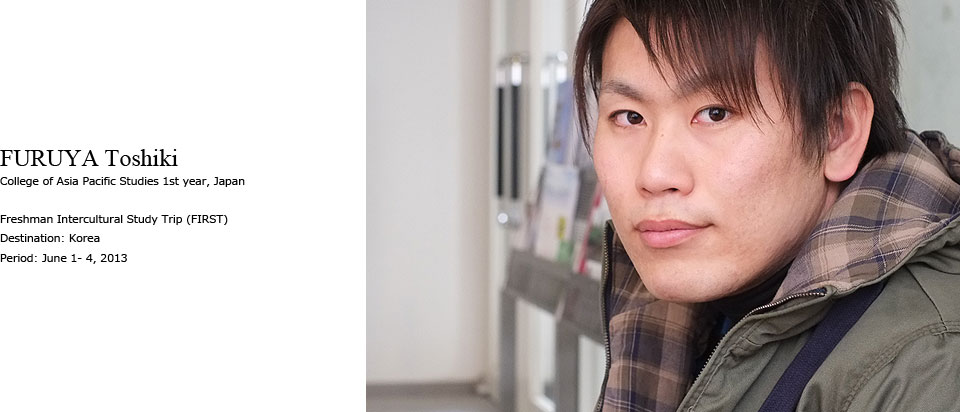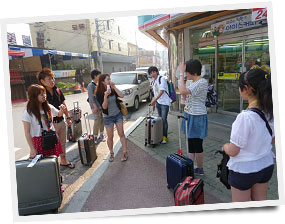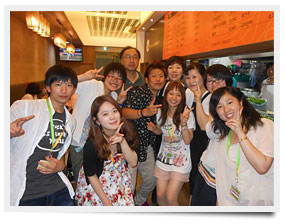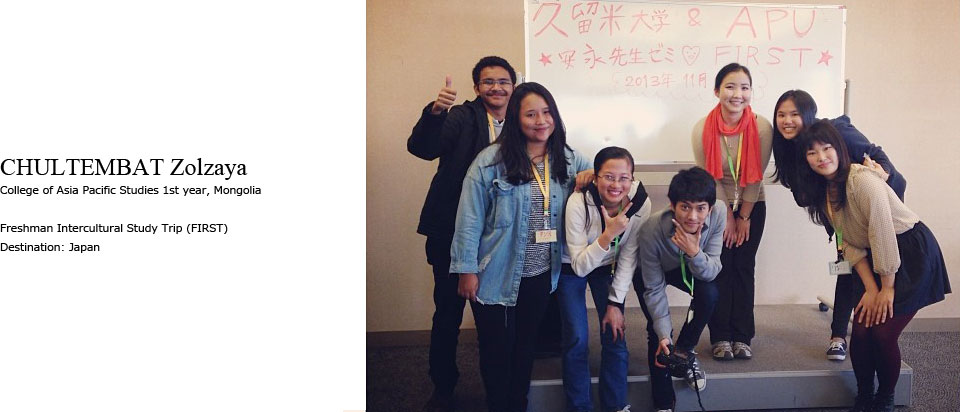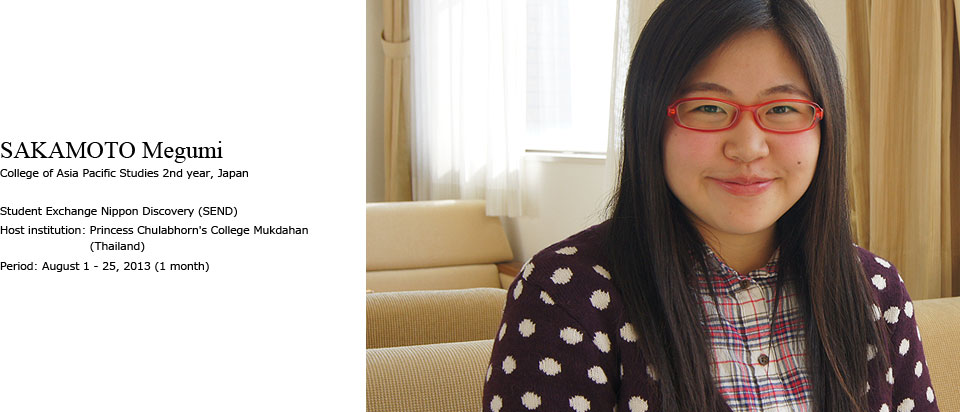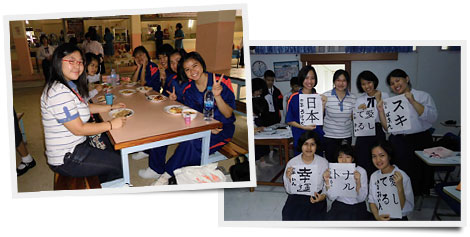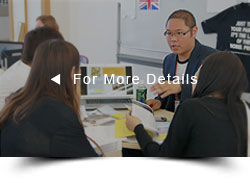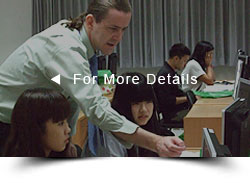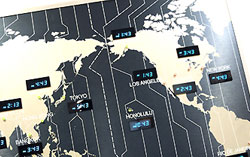I want to be a Japanese teacher.
This program showed me what it's like to teach overseas.
I have always dreamed of becoming a Japanese teacher. I wanted to go overseas to see how Japanese was being taught in high schools, so the SEND Program, an internship in which you introduce Japanese culture and assist in teaching Japanese at foreign schools, was very appealing to me. However, only one APU student can be sent to each school, so I was motivated to test my limits.
I learned that it takes everyone to make a class work.
I interned at a combined junior-senior high school where I taught Japanese and Japanese culture to a group of 20 students from all grade levels. In addition to teaching greetings, numbers and colors, I had planned to introduce Japanese culture with tea ceremony, origami, calligraphy and yukata-wearing, but I was surprised to find out that the students already knew a great deal about Japan. I felt that I should have studied more about Japanese subcultures, like manga and anime, instead of just preparing lessons on traditional culture.
qNot all of the junior high school students could speak English, so one of the high school students interpreted into Thai for me. I did everything on my own, from preparations to classroom management, and it was hard because it was my first time. I was only able to complete the program with everyone's help. This taught me that a lecture requires the cooperation of every single student to be successful. I also worked as a Teaching Assistant in the English classes. I helped the teacher in the classroom and corrected homework assignments.
Experiencing a foreign culture first-hand
I stayed in the same dormitory as the students, but on the weekends, I did homestays at the teachers' homes. At 6:00 every morning, we made offerings to the Buddhist monks and went to the temple. Thai cities are full of Buddhist temples, and our school even had a statue of the Buddha. I learned that many Thais are fervent Buddhists. One other time, I went to a futsal match with my students. Their passionate cheering was just like that of Japanese high school students. In this way, I was able to experience Thai culture first-hand, something I could not have done in the classroom alone.
Using APU's unique environment to fulfill my dream
After the program, I decided to start teaching Japanese to international students to help fulfill my dream of becoming a teacher. The unique international environment at APU makes this possible. I want to keep studying my own language and culture, of course, but I also want to learn about other cultures because I think I might be able to learn something new about Japanese culture by comparing it to other cultures.



